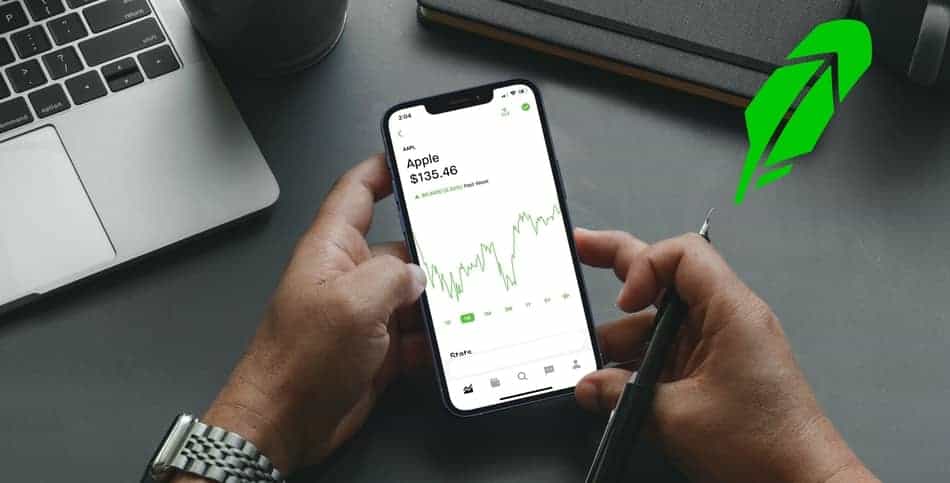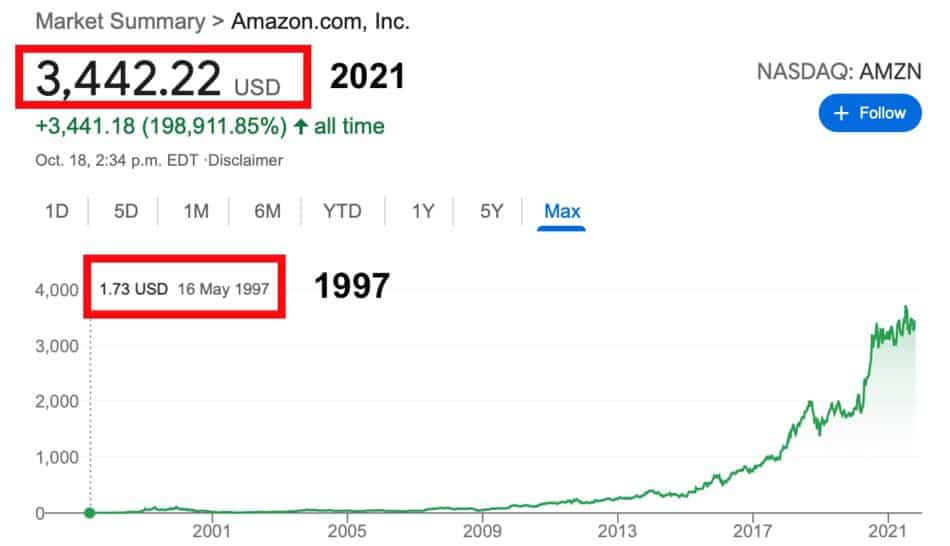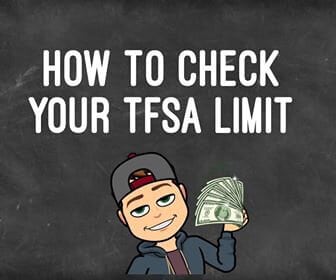
If you have a smartphone, you have likely seen an advertisement for Robinhood, the commission-free stock trading app, pop up on your feed at some point.
Or perhaps you have a friend who has recently turned “professional” investor and has sent you a Robinhood link with the incentive of a free stock share for creating an account. No commissions, free stocks: So is it possible to lose money with Robinhood?
It is possible to lose money with Robinhood. As with any investment platform, deposits made on Robinhood are not backed by the FDIC, and there is no guarantee of positive returns. However, if you use the platform wisely, Robinhood is one of the best ways for people to start building wealth.
| Starting to Invest? | Our Recommendation | Start Trading Today |
|---|---|---|
 | Robinhood InvestOnly in USA
| Start Trading Today |
Many people may not be sure what to think about Robinhood because it does receive some negative press from time to time, usually regarding people getting locked out of their accounts or novice investors losing their entire life savings.
And while yes, these events do happen, much of the negativity is due to sour grapes from traditional investment platforms and financial advisors who have had their status quo disrupted by Robinhood.
How You Can Lose Money with Robinhood
As with any type of investment not backed by the FDIC, it is possible to lose money with Robinhood. Trading stocks is the perfect example of risk versus reward, as the traditionally high yields afforded by the stock market come with the risk that you may lose money.
Due to this risk, there is never a guarantee that you will see positive returns, with the threat of losing everything a real possibility for reckless investors.
The following breakdown takes a look at 5 ways you can lose money on Robinhood:
| 5 Ways You Can Lose Money with Robinhood |
|---|
| 1. Choosing Bad Investments |
| 2. Lacking Patience |
| 3. Joining the FOMO Crowd |
| 4. Loading Up on Penny Stocks |
| 5. Trading on Margin |
1. Choosing Bad Investments
One way to lose money on Robinhood is to choose bad investments. When investing in a company, it is important to assess its financial health and see if growth is attainable. Look at key financial documents such as the balance sheet, income statement, and cash flow statement (all of these are public record).
After assessing the financials, ask yourself these questions:
- Does the company have a clear path to profitability?
- Is the company carrying more debt than it can handle?
- Does the company have an addressable market that a competitor will not easily scoop up?
- Is the company fairly valued? (A simple way to look at this is through the price-to-earnings ratio, or P/E as listed on Robinhood. Most value investors like a P/E between 10 and 30).
If the answer to any of these questions is “no,” then the stock carries some risk and may lose investors’ money.
2. Lacking Patience
There are many axioms relating to the importance of patience when investing in stocks. However, most novice investors conspicuously lack patience, which will come back to bite them more often than not.

All too often, inexperienced investors will purchase shares of a stock, only to see the price immediately dip after their trade closes. Scared that they will lose everything, they sell, locking in the loss.
The stock market is a fickle beast. The path to wealth generally leads up the mountain, but there will be many peaks and valleys along the way. However, you will not get to the top if you abandon the journey at the first sign of adversity.
3. Joining the FOMO Crowd
The general rule when trading stocks is to buy low, sell high. However, fear-of-missing-out (FOMO) is known to afflict investors, with the swipe-and-buy nature of Robinhood providing the ideal environment to get caught up in FOMO.
FOMO occurs when euphoria surrounds a stock, and the price seemingly grows without a hiccup. This is common in tech stocks and cryptocurrencies. Shares explode, and investors buy at exorbitantly high prices, believing the stock can’t lose.
However, no stock, no matter how good, is a guaranteed path to riches. The FOMO crowd usually gets a painful lesson when the stock inevitably crashes, shedding billions of dollars of market cap in a matter of days. Many FOMO investors lack the patience to ride out the rough patch, selling at a loss.
4. Loading Up on Penny Stocks
Inexperienced investors are attracted to penny stocks (loosely defined as stocks trading for less than $10 per share) because they can buy many shares. In addition, many penny stocks have carried a high price tag in the past, and investors inevitably believe it will return to glory.
However, there is a reason penny stocks are low-cost—the overall market sees little value in them. As with most things in life, you have to pay for nice things. For example, Amazon, one of the world’s leading companies, trades at over $3,300 per share at the time of this writing.

Luckily, Robinhood allows fractional trading, meaning that you can buy small portions of expensive stock. As a result, it is usually better to spend $1,000 to buy a fractional share of a strong company than many shares of a penny stock, hoping it will spike someday.
5. Trading on Margin
Margin trading is one of the features that causes Robinhood to draw heavy scrutiny, as inexperienced investors can lose everything if they don’t know how to use margin correctly.
Margin trading basically involves borrowing money to invest in stocks. Say that there is a stock you truly believe will spike soon, but you don’t have enough cash to purchase the number of shares you want. Robinhood will loan you money against your Robinhood account value to make the purchase.
If the trade goes well, you can pay Robinhood back the amount borrowed and keep the profits from the trade. If the trade tanks, you will lose precious account value that you have worked hard to build.
How to Avoid Losing Money with Robinhood
While it is impossible to completely eliminate the chance of losing money on Robinhood, the following best practices can help you invest wisely and increase the likelihood that you will experience a slow, steady path to wealth.
| 5 Tips to Avoid Losing Money with Robinhood |
|---|
| 1. Think Long-Term |
| 2. Do Your Research |
| 3. Have Defined Entry and Exit Points |
| 4. Never Buy on Margin |
| 5. Avoid Shorts, Options, and Futures Unless You’re Experienced |
1. Think Long-Term
Although it is easy to sign in using your touch ID and check your Robinhood account 100 times every day, this is not the best idea. Seeing significant drops in your account can spur impulse decisions to sell, locking in losses.
Remember that the path to wealth does not happen overnight. Rather than checking your Robinhood account daily, spend that time reading about companies and saving cash. Only log into Robinhood periodically to make regular investments, such as on a monthly or quarterly basis.
2. Do Your Research

It is easy to make knee-jerk reactions when investing on Robinhood, as transactions can be completed in as little as a few seconds.
However, don’t join the FOMO crowd. Read up on the companies you are considering investing in, scour their financials, assess the market, and research their leadership. If you believe in all of these facets, then you can invest your money confidently.
3. Have Defined Entry and Exit Points
One of the hardest things for novice investors is knowing when to sell their stock. When the share price goes up, you may be tempted to hold on for just a few dollars in gains. However, the price may just as easily fall off a cliff if you wait too long.
The best idea to lock in gains is to have defined entry and exit points using limit orders. This doesn’t allow you to second-guess yourself and allows the app to trade when prices hit a certain point.
For example, you may place a limit order to buy 100 shares of Stock ABC at $10 per share. A limit sell would be to sell those same 100 shares of Stock ABC when the price hits $15 per share, netting you a $5 per share profit.
4. Never Buy on Margin
As mentioned earlier, it is never a good idea to borrow cash to invest in the stock market. This is a sure recipe for disaster. Only invest free-and-clear cash that you do not need for other purposes.
5. Avoid Shorts, Options, and Futures Unless You’re Experienced
If you set up a margin account on Robinhood, you will have the ability to short stocks and place options and future orders. While these techniques can quickly net you big gains, they are extremely risky and can just as easily cause you to lose everything.
Shorting Stocks
Shorting a stock is basically betting that a stock price will fall. For example, perhaps you believe that Stock XYZ is overvalued at $100 per share. Robinhood can loan you 100 shares of Stock XYZ at $100 per share, in which case you immediately sell the shares for $10,000.

If the price falls to $75 per share, you then buy the 100 shares back for $7,500, returning the 100 borrowed shares to Robinhood and keeping the $2,500 difference for yourself.
The downside to shorting stocks is that if a collapse in price is not imminent, you could be on the hook for a lot more than $2,500. Say that the share price doubles to $200 per share. You will then have to return the 100 borrowed shares to Robinhood after paying an additional $10,000 than what you originally borrowed them for.
So here’s my advice on that, don’t do it.
Options and Future Orders
Options and futures operate using similar principles, only much more complex. In fact, some experienced financial advisors get confused when talking about trading options and futures.
Essentially, you can pay a fee (known as a premium), giving you the option to purchase shares of a stock if they hit a favorable price in the future. If the contract price hits, you can buy or sell the stock at prices that beat the market. If not, nothing happens, but you will lose your premium (a premium is usually equal to the price of 100 shares of the stock at the time of the contract).
In the end, engaging in shorting, options, and futures is more like gambling on a stock price than actual investing and can easily cause novice investors to lose money on Robinhood, so just avoid them unless you are supremely confident in your financial acumen.
Final Thoughts
And there you have it!
Robinhood has helped to revolutionize the commission-free trading craze. This may lead some to believe that there is no downside to starting an account. However, you can lose money with Robinhood, so following the best practices discussed above is important to grow your wealth steadily over time.
I hope you learned a thing or two from this article, if you have any other questions about Robinhood, feel free to contact us here.
Geek, out.
| Starting to Invest? | Our Recommendation | Start Trading Today |
|---|---|---|
 | Robinhood InvestOnly in USA
| Start Trading Today |

![Can Shareholders of a Company Fire the CEO? [The Facts]](https://thefinancialgeek.com/wp-content/uploads/2023/04/Featured-Image-43.jpg)

![Who Loses in Short Selling? [Losers AND Winners]](https://thefinancialgeek.com/wp-content/uploads/2022/12/Featured-Image-29.jpg)


